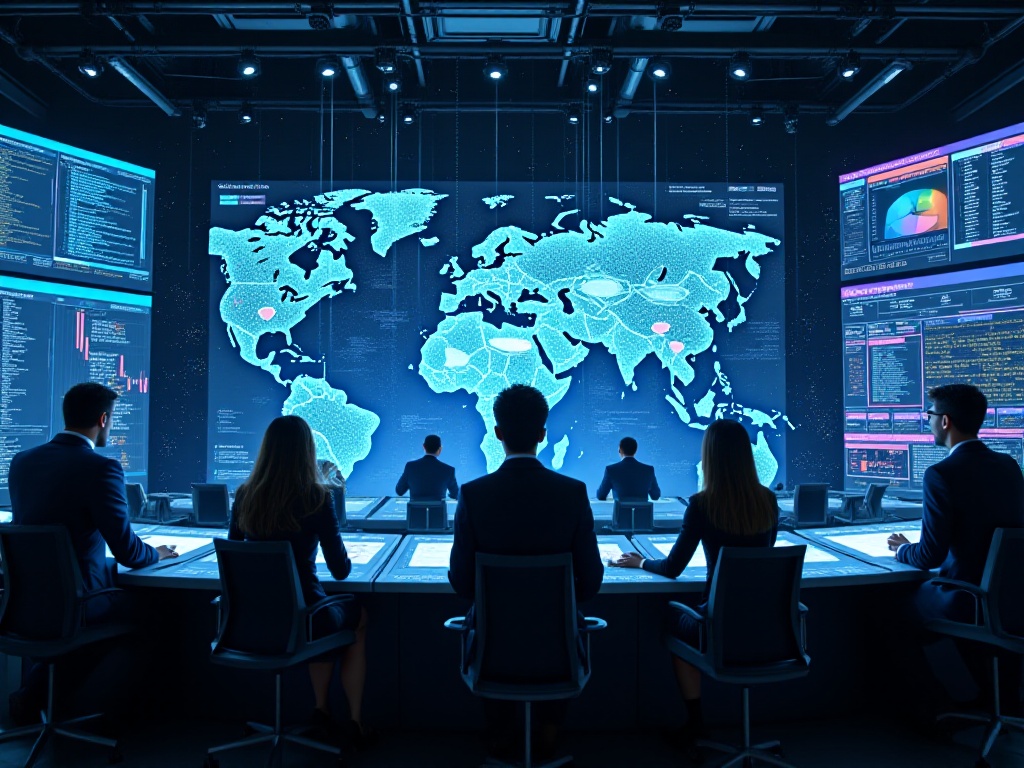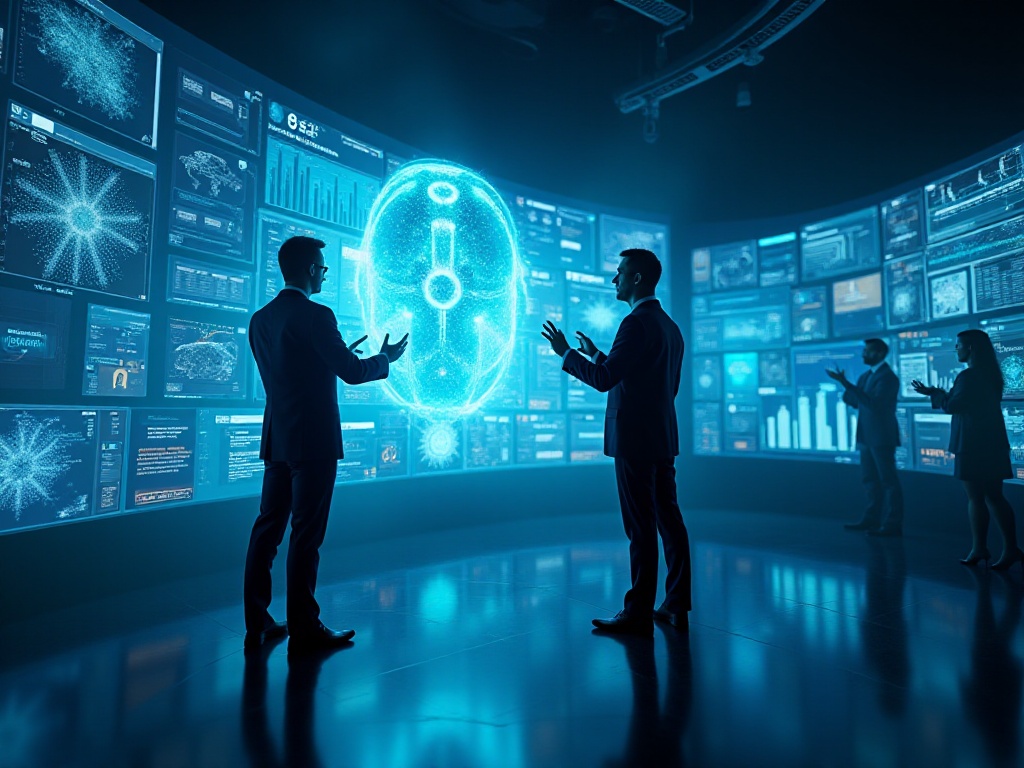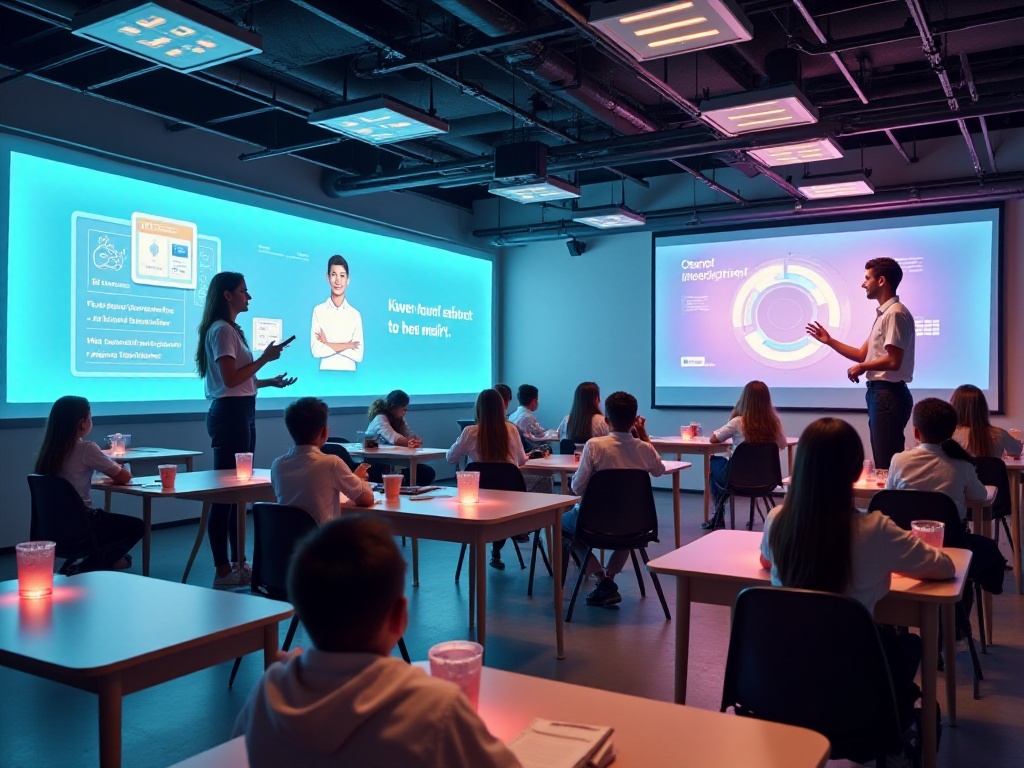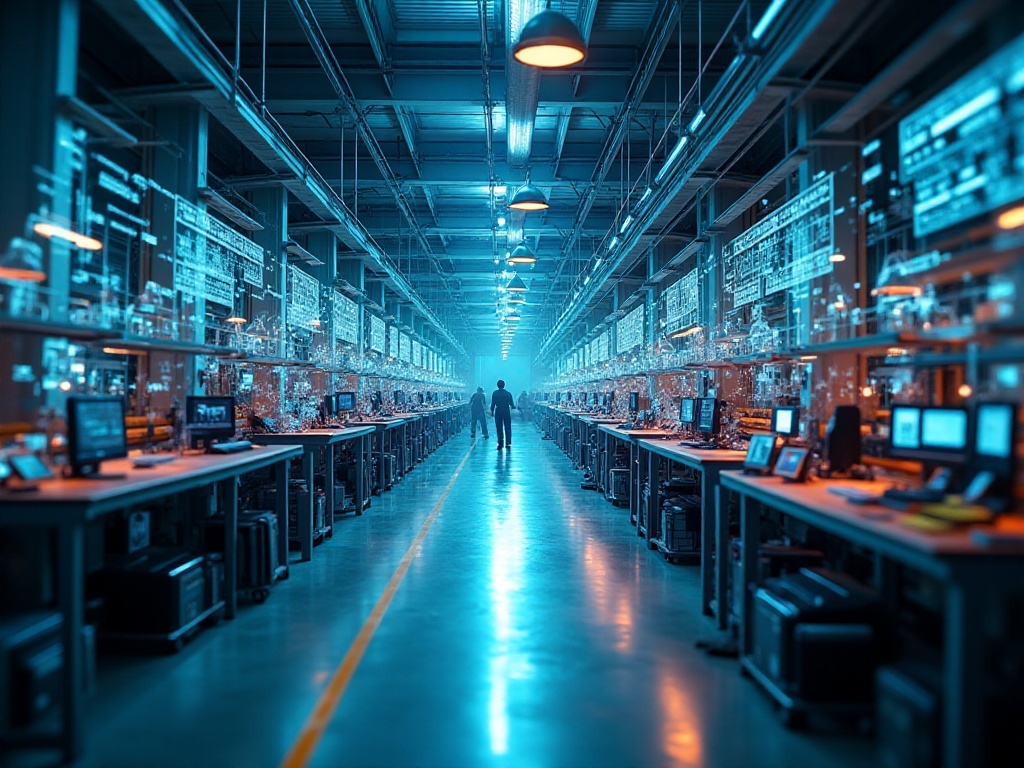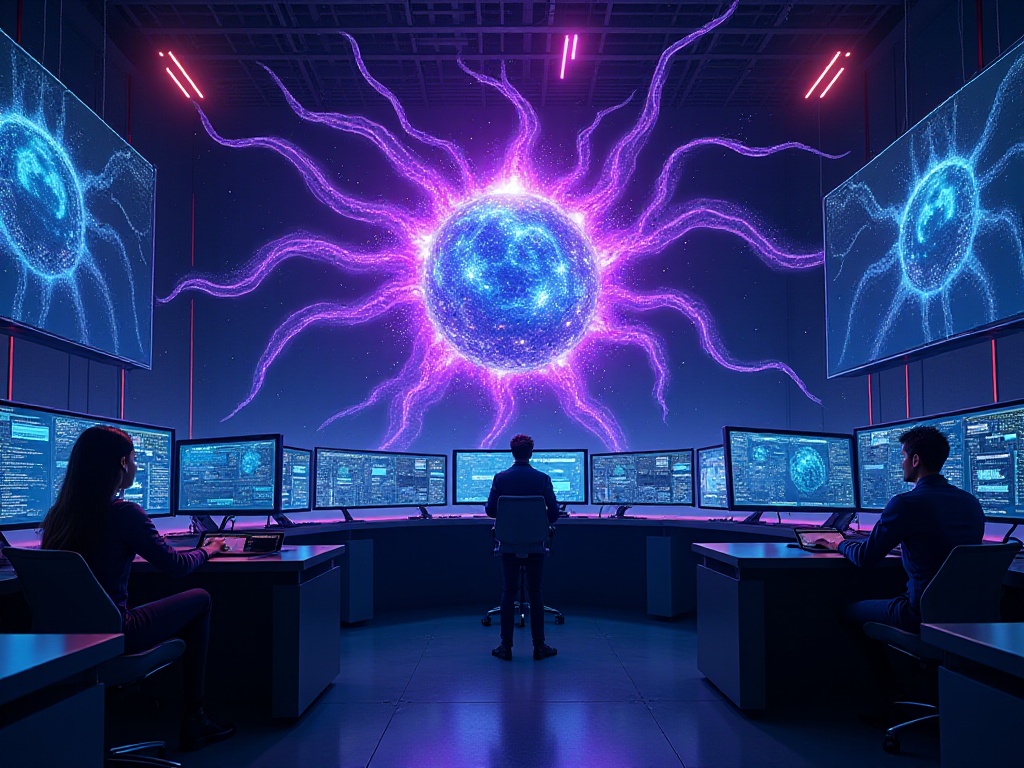Introduction
In recent years, artificial intelligence technology has become incredibly popular, appearing everywhere from our daily mobile apps to intelligent transformations across industries. As a professional who has worked in the AI field for several years, I have witnessed many amazing innovative applications firsthand, and today I'd like to share how AI is changing various industries.
Healthcare
The applications of AI in healthcare are truly impressive. My visit to a top-tier hospital last year left a deep impression on me. Their AI-assisted diagnostic system was remarkable - it could analyze a CT image in seconds with an accuracy rate of over 95%, which is incredibly efficient!
Previously, radiologists would spend 20-30 minutes examining each CT image to ensure they didn't miss any suspicious areas. Now with AI assistance, the system can quickly complete initial screenings and mark suspicious areas, allowing doctors to focus more attention on cases that need special attention. According to the hospital's data, after implementing the AI system, doctors' work efficiency increased by 40%, and more importantly, the missed diagnosis rate decreased by 35% - this is tremendous news for patients.
When it comes to personalized treatment plans, AI's performance is even more impressive. Current AI systems can simultaneously process massive amounts of information including patients' genetic data, medical history, and even lifestyle habits. Through deep analysis of this data, AI can create customized treatment plans for each patient. Research data shows that treatment plans assisted by AI can improve recovery rates by 25%, which is a remarkable improvement.
In daily medical services, AI applications are blooming everywhere. For example, many hospitals now use intelligent triage robots - patients only need to describe their symptoms, and the robot can provide preliminary judgment and recommend the most appropriate department. This not only reduces patients' time spent going back and forth but also improves the overall efficiency of hospital diagnosis and treatment.
In telemedicine, AI applications have been particularly helpful. Especially for patients in remote areas, AI-assisted telemedicine systems allow them to access expert medical services from major hospitals. The system can not only transmit various medical data in real-time but also provide preliminary diagnostic suggestions through AI analysis, making remote consultations more accurate and efficient.

Financial Technology
AI applications in finance are truly fascinating. Remember that sensational credit card fraud case recently? If it weren't for the AI intelligent risk control system detecting the anomaly in time, the consequences would have been unimaginable.
Current AI risk control systems are virtually omnipresent, monitoring every transaction in real-time and analyzing multiple dimensions - not just basic information like transaction time, location, and amount, but also combining user transaction history, social networks, and other multi-dimensional data to assess transaction risks. After implementing an AI risk control system, a major bank reduced fraud losses by 60%, saving over 1 billion yuan annually just from this alone - the results are astounding.
AI applications in investment are even more dazzling. Quantitative trading has become mainstream in the market, with AI systems completing market analysis and decision-making in the blink of an eye, at speeds human traders simply can't match. Statistics show that over 70% of global stock market trades are now AI-operated, and this percentage continues to rise.
Moreover, AI investment systems are becoming increasingly intelligent, not just handling high-frequency trading but also predicting market trends by analyzing massive amounts of news and social media data. Some systems can even assess a company's true operational status by analyzing the speech and expressions of listed company executives - truly remarkable operations.
In personal finance, AI has brought many innovations. Many financial apps now include AI advisory services that provide personalized investment advice based on users' risk preferences, investment goals, and market conditions. Such services were previously only available to high-net-worth clients, but now through AI enhancement, ordinary investors can also receive professional investment guidance.
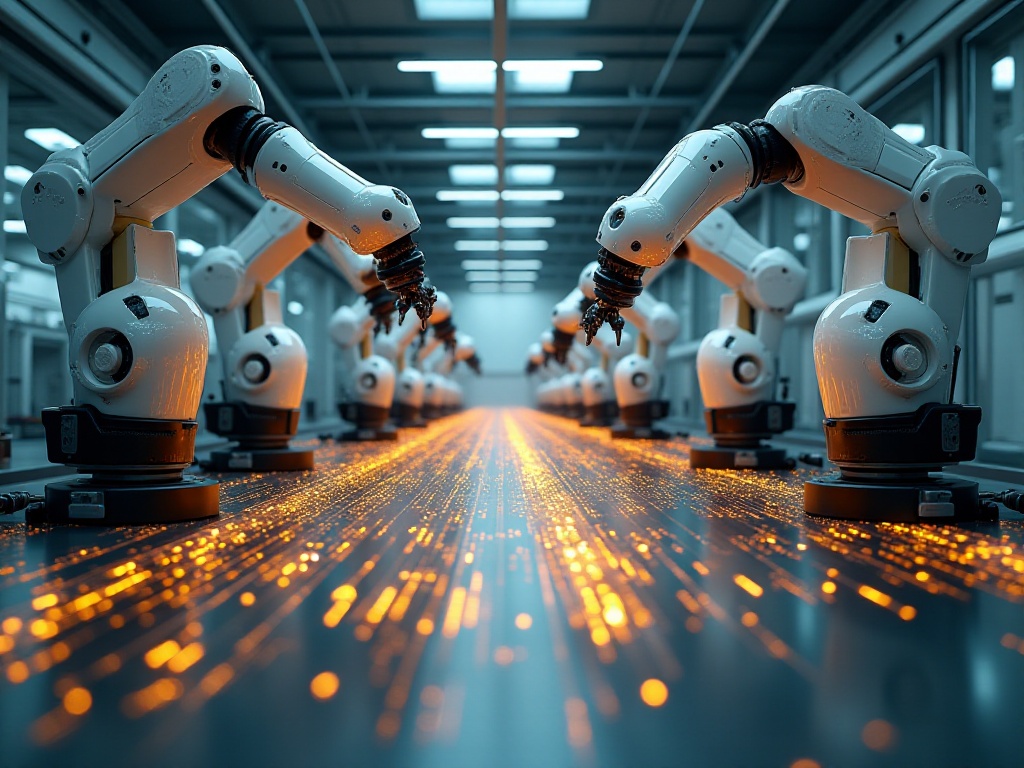
Intelligent Manufacturing
The intelligent transformation of manufacturing has been a major trend in recent years. The smart factory I visited a few months ago completely revolutionized my understanding of traditional factories. The entire workshop was mostly devoid of people, with robots shuttling back and forth everywhere, and all production processes under real-time AI system monitoring, showing remarkable efficiency.
What impressed me most was their predictive maintenance system. Every piece of equipment in the factory is fitted with various sensors that collect real-time operational data such as temperature, vibration frequency, and noise levels. The AI system analyzes this data and immediately issues warnings when it detects abnormal conditions that might lead to failures. This allows for repairs before actual breakdowns occur, avoiding losses from equipment downtime. According to the factory manager, after implementing this system, equipment failure rates decreased by 75%, and maintenance costs reduced by 45% - truly a worthwhile investment.
In quality control, the performance of AI visual inspection systems is even more admirable. Traditional manual inspection is not only slow but also susceptible to factors like fatigue and emotions. AI visual inspection systems can maintain continuous high-efficiency operation, inspecting 1,000 products per minute with 99.9% accuracy - efficiency and accuracy levels that manual inspection simply cannot achieve.
Furthermore, AI plays a crucial role in production planning optimization. The system can automatically generate optimal production plans based on multiple factors such as order status, raw material supply, and equipment conditions. This not only improves production efficiency but also reduces inventory backlog and saves production costs. Some factories have seen production efficiency increase by over 30% and inventory turnover improve by 50% after adopting AI production scheduling systems.
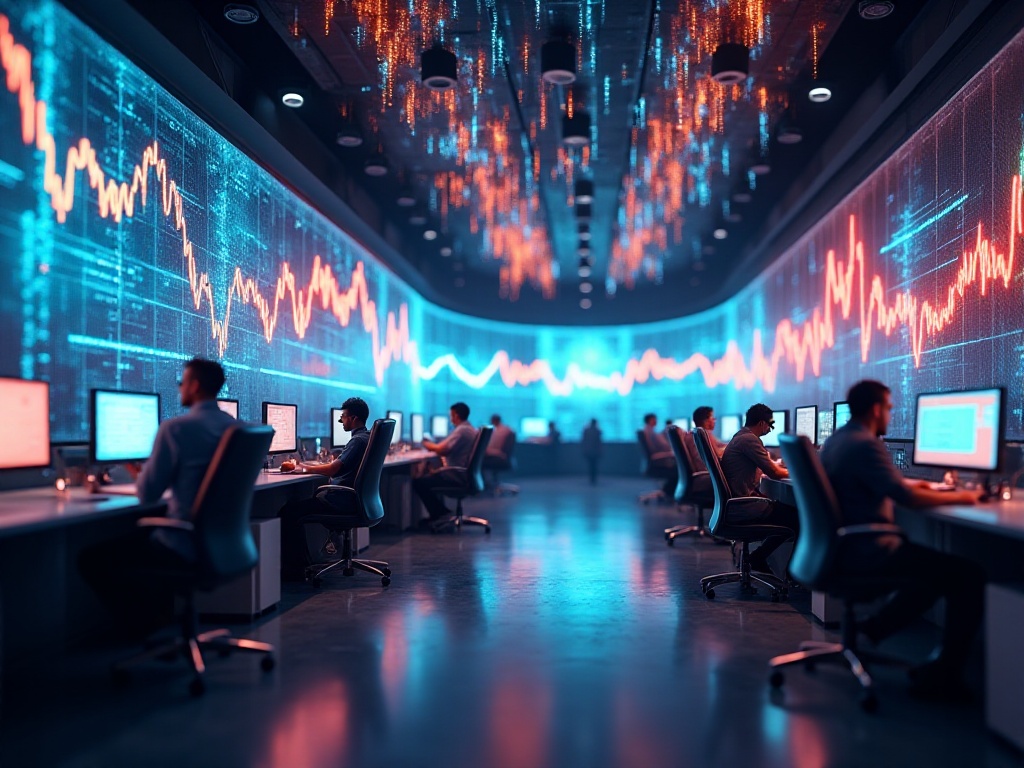
New Retail
In new retail, AI applications are everywhere. The personalized recommendations we often receive while shopping are powered by AI working behind the scenes. The system can accurately predict products we might be interested in by analyzing our browsing history, purchase records, search habits, and even social media interactions.
A well-known e-commerce platform achieved remarkable results after implementing an AI recommendation system. User conversion rates increased by 35%, and average order value rose by 28%. More importantly, the shopping experience improved significantly. Users no longer need to spend extensive time searching through vast numbers of products, as the system directly recommends the most suitable items.
AI applications in inventory management are equally impressive. The system can predict product sales based on various factors including historical sales data, holidays, and weather. For instance, the system will increase umbrella and raincoat inventory when it predicts rain in an area, or stock more cold drinks and cooling oil when the weather turns hot. After implementing an AI inventory management system, a chain supermarket reduced inventory backlog by 40% and improved replenishment efficiency by 50%, significantly helping to improve operational efficiency and reduce costs.
Many physical stores are now also applying AI technology. For example, smart shelves can monitor product placement in real-time through cameras and automatically notify for restocking when items are low; smart price tags can automatically adjust prices based on competitor pricing and inventory levels; and facial recognition systems can identify VIP customers and proactively push personalized offers. These applications not only improve operational efficiency but also make shopping more intelligent and convenient.

Future Outlook
Looking ahead, AI applications will certainly become more widespread and in-depth. Especially with breakthroughs in generative AI technology, many traditional industries will face new opportunities for transformation. For example, in education, AI can provide personalized learning plans for each student; in energy, AI can optimize energy dispatch and improve energy usage efficiency; in environmental protection, AI can help monitor and provide early warnings for environmental pollution.
However, ultimately, AI remains a tool, and its value lies in how it combines with human intelligence to create greater value. Future development will certainly be human-machine collaboration rather than opposition. As a practitioner, I particularly look forward to seeing more innovative AI applications emerge, and I hope more friends will join the AI application innovation team.
Speaking of which, what thoughts do you friends have about AI? Feel free to tell me in the comments - perhaps your idea could spark the next revolutionary AI application!


